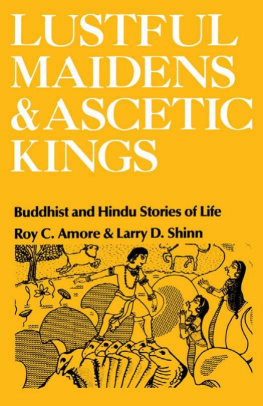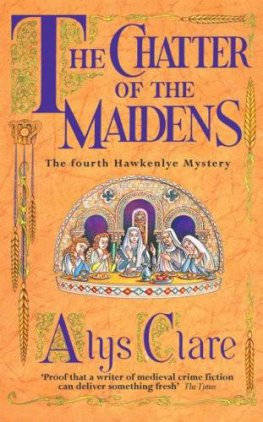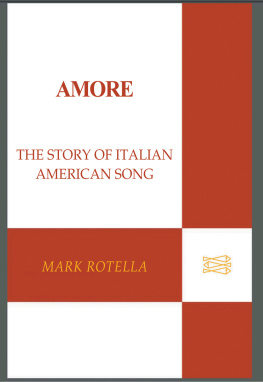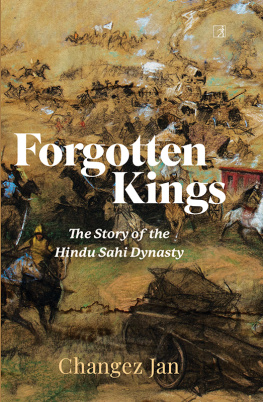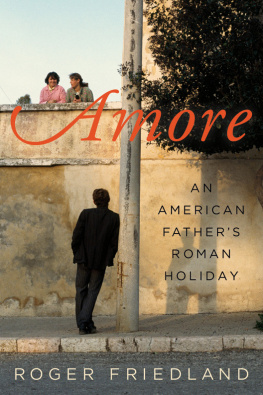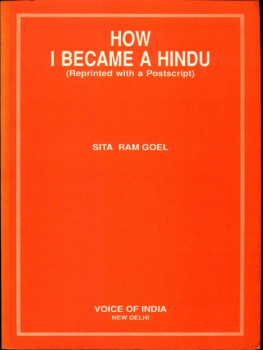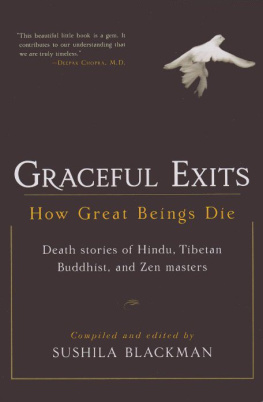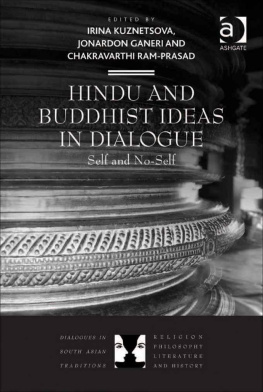Roy C. Amore - Lustful Maidens and Ascetic Kings: Buddhist and Hindu Stories of Life
Here you can read online Roy C. Amore - Lustful Maidens and Ascetic Kings: Buddhist and Hindu Stories of Life full text of the book (entire story) in english for free. Download pdf and epub, get meaning, cover and reviews about this ebook. year: 1981, publisher: Oxford University Press, genre: Children. Description of the work, (preface) as well as reviews are available. Best literature library LitArk.com created for fans of good reading and offers a wide selection of genres:
Romance novel
Science fiction
Adventure
Detective
Science
History
Home and family
Prose
Art
Politics
Computer
Non-fiction
Religion
Business
Children
Humor
Choose a favorite category and find really read worthwhile books. Enjoy immersion in the world of imagination, feel the emotions of the characters or learn something new for yourself, make an fascinating discovery.
- Book:Lustful Maidens and Ascetic Kings: Buddhist and Hindu Stories of Life
- Author:
- Publisher:Oxford University Press
- Genre:
- Year:1981
- Rating:5 / 5
- Favourites:Add to favourites
- Your mark:
- 100
- 1
- 2
- 3
- 4
- 5
Lustful Maidens and Ascetic Kings: Buddhist and Hindu Stories of Life: summary, description and annotation
We offer to read an annotation, description, summary or preface (depends on what the author of the book "Lustful Maidens and Ascetic Kings: Buddhist and Hindu Stories of Life" wrote himself). If you haven't found the necessary information about the book — write in the comments, we will try to find it.
Roy C. Amore: author's other books
Who wrote Lustful Maidens and Ascetic Kings: Buddhist and Hindu Stories of Life? Find out the surname, the name of the author of the book and a list of all author's works by series.
Lustful Maidens and Ascetic Kings: Buddhist and Hindu Stories of Life — read online for free the complete book (whole text) full work
Below is the text of the book, divided by pages. System saving the place of the last page read, allows you to conveniently read the book "Lustful Maidens and Ascetic Kings: Buddhist and Hindu Stories of Life" online for free, without having to search again every time where you left off. Put a bookmark, and you can go to the page where you finished reading at any time.
Font size:
Interval:
Bookmark:
| Lustful Maidens and Ascetic Kings: Buddhist and Hindu Stories of Life | |
| Roy C. Amore & Larry D. Shinn | |
| OUP USA (1981) | |
| Rating: | **** |
| Tags: | Religion, Buddhism, General, Hinduism, Eastern, 9780195028393 |
| Religionttt Buddhismttt Generalttt Hinduismttt Easternttt 9780195028393ttt |
Includes stories about family and social roles and lay and monastic values.
"A marvellous introductory text, well-organized and clearly written. The renditions of stories are readable and engaging." --Edward T. Gilday, Bowdoin College
"A delicious repast of stories, delightfully told and intended to satisfy our narrative appetites and nourish our moral sensibilities. Drawing upon tales from the Hindu epics, the Pacatantra, Puranas, Jatakas, Nikayas, and other texts, the authors provide translations and summaries of stories illustrating fundamental Hindu and Buddhist values and attitudes....A good candidate for use in undergraduate courses in Indian religion
s or the introduction to religion."--Religious Studies Review
"This instructive retelling of tales from traditional Hindu and Buddhist texts introduces the reader to the popular teachings of these traditions not as abstract concepts but dressed in their original, attractive story form."--Donald K. Swearer, Swarthmore College
"A brilliant success."--K.L. Seshagiri Rao, University of Virginia
"A delicious repast of stories, delightfully told and intended to satisfy our narrative appetites and nourish our moral sensibilities."--Religious Studies Review
Roy C. Amore is at University of Windsor. Larry D. Shinn is at Oberlin College.
Lustful Maidens and Ascetic Kings
Long ago in the city of Mahilaropya lived a king who was righteous and wise. He was also generous and treated his subjects fairly while taxing them very lightly. This virtuous king had three slow-witted sons and fretted over his task of teaching them the laws and duties of kingship. He called in his ministers for their counsel and said, "Advisors, you already know that my three sons are complete fools and slow to learn their lessons. I can see little profit in the birth of a son if he be neither virtuous nor wise. What can a man do with a cow which gives neither milk nor calves? Still, it is my duty to provide instruction for my sons in the duties of kingship, and I now ask your advice as to the best means."
One minister responded, "Your majesty, you know that the study of Sanskrit grammar takes twelve years to complete before a student can progress to the study of moral obligations, the art of love, and the means of worldly success. This is a difficult assignment even for the intelligent pupil to accomplish; how much more troublesome for the dull-witted. Still, I have heard that there is a brahman named Vishnusharman who is famous for his wisdom and teaching skill." The king was pleased to hear his minister's report, and summoned Vishnusharman at once.
When the elderly sage was brought and seated before the king, the anxious monarch said, "Noble brahman, I beg you to help me in the education of my three dull sons so that they may be counted as second to none in the knowledge of their princely duties. I will give you a fortune in gold if you are able to accomplish this task." The wise old teacher replied, "Your majesty, since I am old and my senses are numbed by the passage of time, the age for me to enjoy a fortune in gold is past. Still, what you ask me to do is a challenge to my teaching skill and I gladly accept this difficult task. In fact, if by the end of six months I have not raised your sons' knowledge above all their peers, you may banish me from your kingdom as an imposter!"
When the king and his ministers heard the sage's incredible promise, they at once turned the three idiot princes over to him for instruction. The proud and venerable sage then composed the Five Books of Princely Fables (the Panchatantra} and by these animal tales achieved his appointed task.
This account of the origin of the Panchatantra illustrates the importance Indians place upon storytelling as an instructional device. The many collections of myths (e.g., Puranas) serve as vehicles of lay religious education in a culture where literacy is low but storytelling abounds. Animal fables, fairy tales, epic stories of cultural heroes, narratives of the previous lives of the Buddha, and regional folktales of all kinds have been a part of In-dia's oral culture for over three thousand years. These narratives are conveyed by folk-singers, priests, dramatists, and parents in all the Indian dialects. Festivals, daily temple recitations of poetry and scripture, dramas, and songfests all provide occasions for transmission of the tales which instruct, admonish, and simply entertain Indian children as well as adults.
To grow up in India is to mature in a world alive with demons and water nymphs, goblins and irate goddesses. Wisdom is often measured not by degrees or formal education, but by the ability to tell the right story or recite a passage of scripture appropriate to a particular situation. Mothers and fathers teach their children religious and family responsibilities through stories. Householders scold their servants with reference to the fate of a character in a particular tale. In classical times, the student priest had to commit to memory vast quantities of scriptures, which varied in subject matter from the techniques of sacrifice to the proper conduct of the king in peacetime and at war. The moral tales and fables as well as myths relating the feats of the gods were common fare for any person who sought to be educated.
The specific sources for the stories told herein are listed at the end of this work. To place such sources in the history of Indian literature would require a book of equal length to this one, but to note some broad features of Indian story telling and collecting can be instructive. First of all, since stories are transmitted orally in the first instance, the same story may be found in different versions in written sources quite distant from each other in time. For example, the famous story of the god Vishnu assuming a dwarf's form to trick a demon king out of his ill-gotten rule of the universe, is mentioned in the earliest Aryan collection of hymns in Sanskrit called the Vedas (c. twelfth century B.C.) and is repeated in various writings down to the Bhagavata Purana (c. ninth century A.D.). Secondly, the sharing of stories from one time period to another is mirrored in the use of the same story by different religious traditions in the same era. For example, the story of the donkey disguised in a lion's skin appears in Hindu and Buddhist literature, as well as in Greek fable collections. Thirdly, in spite of the fluid movement of stories through time and traditions, Indian stories are "frozen" periodically in story collections evidencing a wide variety of purposes and designs.
The earliest Indian literature, the Vedas, consists of hymns to various gods, whose stories are .more often assumed than told. The dozens of references to various stories, however, have given credence to the primary importance of story in this earliest period of Indian literature and religion. The threads of this early Sanskrit mythological tradition persist throughout later priestly writings, the Brahmcmas (c. 900 B.C.), and reach full bloom in the "Legends" of the gods, the Puranas (c. 300-900 A.D.). Alongside this development of myths and legends, didactic moral fable collections began to emerge (200 B.C.-ZOO A.D.). One early fable collection was the Panchatantra or "Five Wisdom Books" from which several of our stories come. Concurrently, the Buddhists borrowed many of the fables used in other contexts to tell of the many "Previous Births" of the Buddha (the Jataka tales of the Pali Canon, the Buddhist scripture dating from the second century B.C.). These narratives form the source for many of the Buddhist tales told in the pages which follow.
Font size:
Interval:
Bookmark:
Similar books «Lustful Maidens and Ascetic Kings: Buddhist and Hindu Stories of Life»
Look at similar books to Lustful Maidens and Ascetic Kings: Buddhist and Hindu Stories of Life. We have selected literature similar in name and meaning in the hope of providing readers with more options to find new, interesting, not yet read works.
Discussion, reviews of the book Lustful Maidens and Ascetic Kings: Buddhist and Hindu Stories of Life and just readers' own opinions. Leave your comments, write what you think about the work, its meaning or the main characters. Specify what exactly you liked and what you didn't like, and why you think so.

